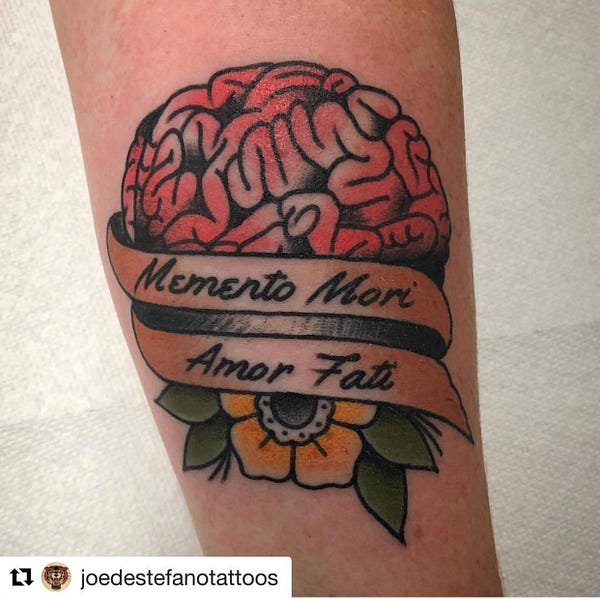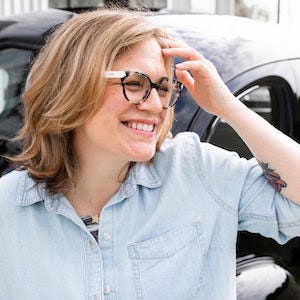“I’m gonna die, you’re gonna die. So is everyone we’ve ever loved and hated. And that’s OK.”
When I thought about what to write for my End Well blog post, I struggled to think of something different than what I submitted last year. The story I share in last year’s piece is one I’ve now told a million times. I know it well — where to put the emphasis (“Ever onward!”) and what will get the audience’s applause. Conversely, I know what parts of my story people may want to deny or avoid: Death. Dying. Fears and deficits that come with a brain cancer diagnosis.

In July 2016, my brain tumor was discovered after I fainted off a bar stool at a downtown Detroit coffee shop. Turns out, it wasn’t just a simple faint: I had a grade 3 anaplastic astrocytoma. A grade 3 astrocytoma is a junior glioblastoma (or, more accurately, a glioblastoma is a grade 4 astrocytoma). It is incurable and considered a terminal diagnosis, though many patients prefer to call it a chronic illness. That doesn’t mean I’m dying tomorrow — unless, as my neuro-oncologist once told me, I get hit by a car or something like that — it just means we don’t have a fix.
Last year, Molly shared her patient story with us. Click here to learn more about her cancer experience.
We expect my tumor to, maybe, charge up and for those rogue astrocytes to return — either as anaplastic astrocytoma again, or GBM. One or the other, no lesser. I won’t get better, we just hope that we can hold it off as long as possible before its encore performance. Worse than reoccurrence or GBM? There’s not really anything worse. It’s a turd sandwich.
Though come to think of it, there is worse. Worse is denying that reoccurrence is possible. Worse is convincing myself that I am cured and “cancer-free” (no brain cancer patient should ever be told that falsity) only to crumble and fall to pieces when new growth appears on a future MRI.
Worse is not mentally planning for future treatment, including palliative and end-of-life care. When to demand my off-switch to be clicked, so my family isn’t left making the difficult choice for me.
There may come a time when I can’t write and I can’t speak, so I plan to make these decisions while I’m still in control of my think-box.

Losing my mom last year and my aunt recently brings certain things to the forefront of my now with urgency: Death is guaranteed. Death will happen. I want to be ready. Not because I’m morbid or depressed, but the opposite of that. The thought of leaving this world — everyone and everything I love — scares me. The thought of the act of dying scares me more than death itself, to be honest. I need to be on better terms with death and dying.
If death is anything like falling off a barstool and passing out, I can handle that. The thought of an eternal afterlife I can’t even comprehend, but that sounds cool, too. But dying in pain and afraid? That is what I fear. I don’t want that. However, I choose to talk about it so I am as familiar with death and dying as I am with my own name. It’s not because I crave death, it’s because I love being alive with every fiber of my being. I love life so much.
And if we’re honest with ourselves, we can admit that in loving life — truly loving life — we can accept death as a thing we all do. There should be no stigma attached to something absolutely guaranteed from the moment we come into existence: I’m gonna die, you’re gonna die. So is everyone we’ve ever loved and hated. WE ARE ALL GOING TO DIE. That’s that. And that’s OK.
Last year, I suggested we live our best lives and live them right now. This year? Live our best lives, live them right now, because one day — you are going to die. Learn to let it be OK. And be ready.

After spending 36 years aimlessly searching for meaning, Molly, in 2016, found it with a brain cancer diagnosis. Molly is a cancer patient advocate, speaker, and writer: ‘Diagnosis isn’t the end, it’s the start.’
You can follow along with Molly’s journey at @lifeiskitsch.